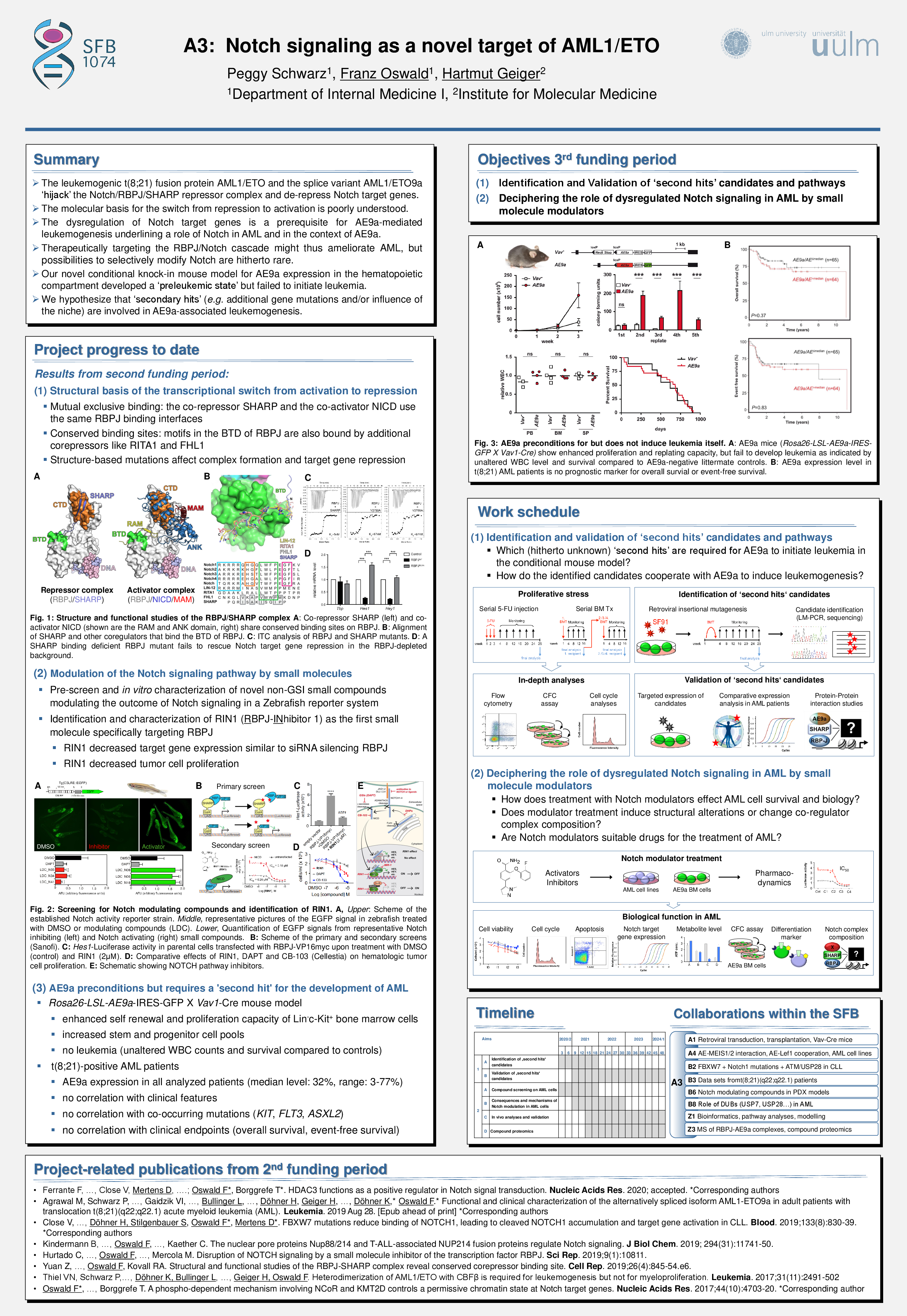Project A3: Notch signaling as a novel target of AML 1/ETO
Principal Investigators
Prof. Dr. Franz Oswald
Department of Internal Medicine I
Ulm University
Albert-Einstein-Allee 23
89081 Ulm
Phone: 0731-500-44544
franz.oswald(at)uni-ulm.de

Prof. Dr. Hartmut Geiger
Institute for Molecular Medicine
Ulm University
Life Sciences Building N27
James-Franck-Ring 11c
89081 Ulm
Phone: 0731-50-26700
hartmut.geiger(at)uni-ulm.de
Summary
AML1-ETO9a (AE9a), an alternative splice product found in t(8;21) AML patients, was associated with adverse clinical outcome and causes leukemia upon retroviral transduction/ transplantation in mice. However, recent analyses of patient data argue against a prognostic impact in t(8;21)-positive AML patients. In addition, a novel inducible mouse model of hematopoietic AE9a expression failed to develop leukemia, suggesting that additional cell-intrinsic (e.g. deregulated gene expression) and non-cell-autonomous events (e.g. distinct signals from the niche) are required for AE9a-mediated leukemia. To identify such events, a retroviral insertion mutagenesis together with molecular and biochemical validation and comparative analyses in clinical data sets will be performed. A critical contribution of dysregulated Notch transcription in AML was recently observed. Therefore, the role of Notch in (AE9a-mediated) AML will be further deciphered using small molecule compounds identified in a pre-screen to modulate Notch activity. Importantly, positive hits can rather quickly be translated into the clinic, as some of these compounds are already clinically approved.
For a current list of all project-related publications, please go to this page

